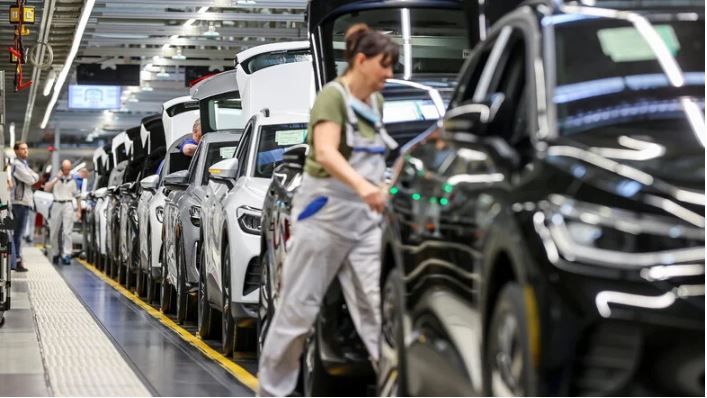Berlin/Munich. The president of the German Association of the Automotive Industry, Hildegard Müller, does not rule out the possibility that Germany could fall by the wayside as an industry location. Although German manufacturers would not lose the race for the future, "the German location would without massive reforms," Müller told the Deutsche Presse-Agentur in a joint interview with Microsoft's Head of Germany Marianne Janik. Müller complained before the start of the Automobile fair IAA including overregulation, political decisions that are too slow, and a lack of legal frameworks for future topics such as artificial intelligence.
One example, he said, is the use of data: "If we restrict that here in Europe, in Germany, that doesn't mean it's not happening somewhere else in the world." Nor does it mean that German manufacturers are not active in the field elsewhere, he said. "The question is, are we creating a political, a regulatory framework here so that we can be competitive and lead the way internationally?"
The main point, however, is "that the location in Germany is dramatically losing its international competitiveness due to the cost structure," Müller warned. For example, Germany has the highest energy costs. The automotive sector believes that a temporary industrial electricity price is necessary. This would prevent important industries such as battery or semiconductor technology from relocating or not settling in the first place. Medium-sized suppliers say: "The issue of energy prices is becoming toxic for us." Investments are no longer being increased here in Germany, "instead they are going to other European countries or to the USA.
In the next two to three years, Microsoft expects a significant acceleration in the digitization of the automotive industry "the likes of which we have not seen in the last 40 years," Janik said. This would include artificial intelligence such as the free-form ChatGPT dialog system for example, simulations with which assistance systems can run through various situations. The tech group offers itself to the industry as a "platform provider," he said. "This platform idea means that we also break down industry boundaries."
The auto industry is experiencing lost time and complexities because the administration in Germany is not digitized, Müller criticized. "Of course, there are no easy solutions with AI, with ChatGPT - but they are coming, we have to shape them now. We can't say we'll wait for years," she warned. "In that time, other regions of the world, which in many respects have better location conditions than we do anyway, will pass us by."
The industry must invest now, he said, and intends to invest 250 billion euros over the next five years in digitization, among other things. "We cannot and will not wait as an industry, because otherwise we will not achieve the climate targets," Müller emphasized. "We are deciding now where to invest in the technologies of the future - and that's why the state must also step up its pace on these issues."
Microsoft manager Janik, who previously worked at the Mercedes Group, among others, emphasized that the race in many future technologies has not yet been decided: "I think it's only really getting started." With artificial intelligence, for example, there is a chance for a leap forward in innovation, and the German automotive industry is currently demonstrating its ability to cooperate with the tech industry.
"There is enormous potential for CO2 savings in digital mobility solutions," Müller also said. In addition, he said, they will enable people to get around more safely, efficiently and comfortably. "We've already developed numerous solutions - what's needed now is the digital infrastructure and the legal framework so that we can realize them." (dpa)








